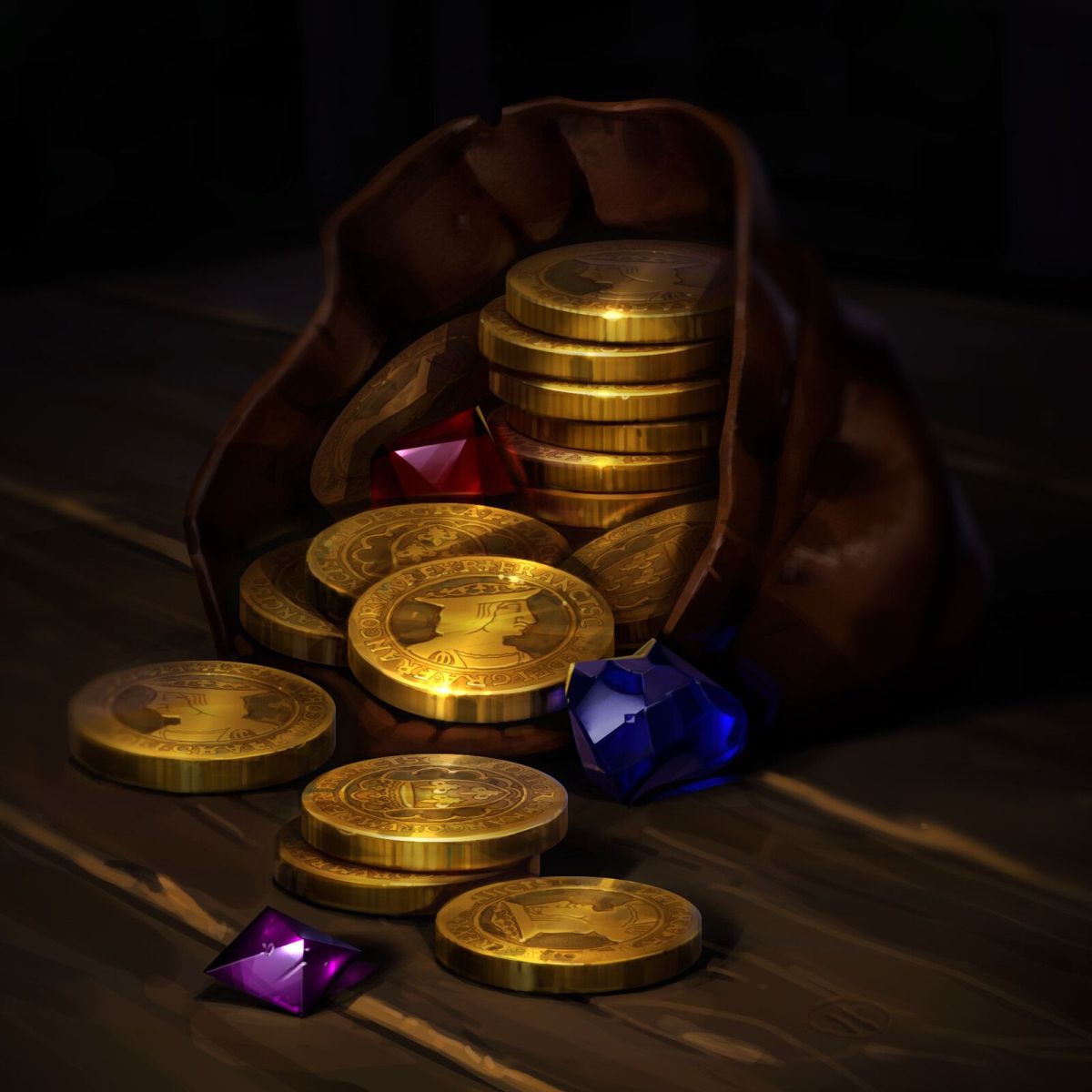Fool's Gold (spell)
Fool's Gold appears to transform existing metal into real gold, though the spell has no power to transform the originating metal's shape. Thus, wrought iron or lead appears to be wrought gold, powdered metal becomes powdered gold, copper coins become very large gold coins and so on. To those observing the effect, the density of the material feels exactly like gold as well, so that the material seems to increase in weight as well as appearance.
| Range | 10 ft. |
| Duration | 3 hours +1 per level |
| Area of Effect | 1 lb. of original metal per level |
| Casting Time | 1 round |
| Saving Throw | none |
| Level | illusionist (2nd); mage (2nd) |
The effect is completely false, however. The spell is unable to produce real gold ... and after the spell's duration passes, the "gold" regains its former nature. As such, those who are familiar with either magic or metal are well-aware of the existence of fool's gold in the gaming world, and will be on the lookout for it. The caster should therefore take steps to conceal the metal to be transformed, taking steps to remove the mint-stamp from an existing copper or silver coin, or other clues that would give the observer reason to doubt. Likewise, the caster would do well to avoid assayers, who would certainly recognise the dweomer. Additionally, the dweomer won't make a harder metal more malleable, as pure gold would be. Therefore, a hard gold sword would be suspicious.
That said, the purpose of the spell is to allow the caster to "get away with it," with regards to duping the common, ordinary rube, either in a large city or a backwater village. There are many gullible people in the world who want to believe so hard that they'll overlook details, if they think it'll make them rich. Therefore, how the caster plays the situation matters a great deal. The spell may have limitations with regards to simply using fool's gold as a monetary unit, the effect has tremendous possibilities as an enticement. For example, the mage who asks, "Am I wealthy? Of course I am; look at this beautiful golden vase. I have more than enough money to pay you when the job's done."
See also,
Material (spell)
Minor Creation (spell)
